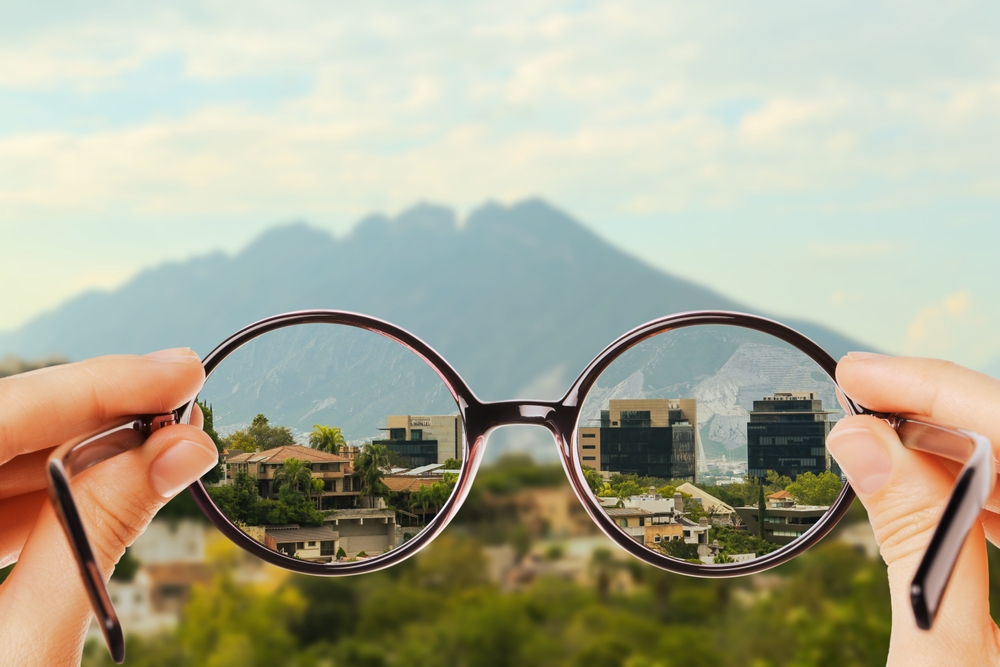
Myopia, commonly known as nearsightedness, is a refractive error in the eye that causes distant objects to appear blurred while close-up objects remain clear. This condition occurs when the eyeball is too long or the cornea is too curved, causing light to focus in front of the retina instead of directly on it.
Understanding Myopia
There are several factors that can contribute to the development of myopia, including:
· Genetics: Having parents or other close relatives with myopia increases your risk of developing the condition.
· Excessive near-work: Spending too much time on activities like reading, using computers, or playing video games can strain the eyes and lead to myopia.
· Lack of outdoor activity: Studies have shown that spending less time outdoors and more time indoors can increase the risk of myopia.
The primary symptoms of myopia include:
· Blurred vision when looking at distant objects
· Difficulty seeing the blackboard or road signs
· Frequent squinting or eye strain
· Headaches or fatigue after prolonged close-up work
If left unchecked, myopia can worsen over time, leading to a higher risk of eye-related complications, such as retinal detachment, glaucoma, and cataracts.
The Importance of Early Intervention in Myopia
Early intervention is crucial when it comes to managing myopia. By addressing the condition in its early stages, you can slow down or even halt the progression of the refractive error, reducing the risk of long-term complications and preserving your vision health.
Delaying treatment can allow myopia to continue worsening, potentially leading to more severe vision problems and a higher prescription later in life. On the other hand, proactive management can help you maintain clear, comfortable vision and minimize the impact of myopia on your daily activities.
Effective Methods in Combatting Myopia
There are several effective methods available for managing myopia. These approaches aim to either slow down the progression of the refractive error or provide vision correction without the need for traditional glasses or contact lenses.
Orthokeratology, or Ortho-K, is a non-surgical procedure that uses specialized rigid gas-permeable contact lenses to temporarily reshape the cornea, the clear front part of the eye. By gently flattening the cornea, these lenses can correct refractive errors like myopia, allowing you to see clearly without the need for glasses or daytime contact lenses. This method is particularly beneficial for children and young adults, as it can help slow down the progression of myopia while providing clear, comfortable vision.
Atropine is a medication that can be used as an effective myopia management tool. When applied as eye drops, atropine has been shown to significantly slow down the progression of myopia in children and adolescents. Atropine eye drops are typically prescribed in low concentrations, such as 0.01%, to minimize potential side effects while still providing the desired myopia control benefits.
Dual focus soft contact lenses are a relatively new approach to myopia management. These lenses are designed with a unique optical structure that provides clear central vision for everyday tasks while simultaneously introducing a peripheral defocus that can slow down the progression of myopia. The peripheral defocus works by creating a subtle difference in the focus of light entering the eye, which has been shown to signal the eye to stop elongating and reduce the worsening of myopia. At the same time, the central portion of the lens ensures that you can see clearly and comfortably throughout the day.
Navigating Myopia with the Help of D Vision Eyecare
Myopia is a common and often progressive condition, but with the right management strategies, you can take control of your vision health and prevent or slow down the worsening of this refractive error.
By understanding the causes and symptoms of myopia, as well as the various management methods available, you can work closely with your eye care professional to develop a personalized plan that addresses your specific needs and goals. Whether it's Ortho-K lenses, atropine eye drops, or dual focus soft contact lenses, there are effective solutions to help you maintain clear, comfortable vision and reduce the risk of long-term eye health complications.
To learn more about the most effective methods for combatting myopia and taking control of your vision health, schedule a consultation with D Vision Eyecare. We can assess your individual needs and develop a customized myopia management plan to help you achieve and maintain clear, comfortable vision. Visit our office in Allen, Texas, or call (972) 649-4441 to book an appointment today.





